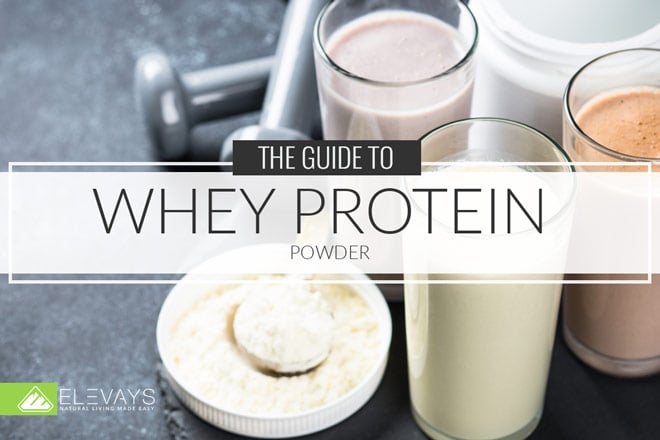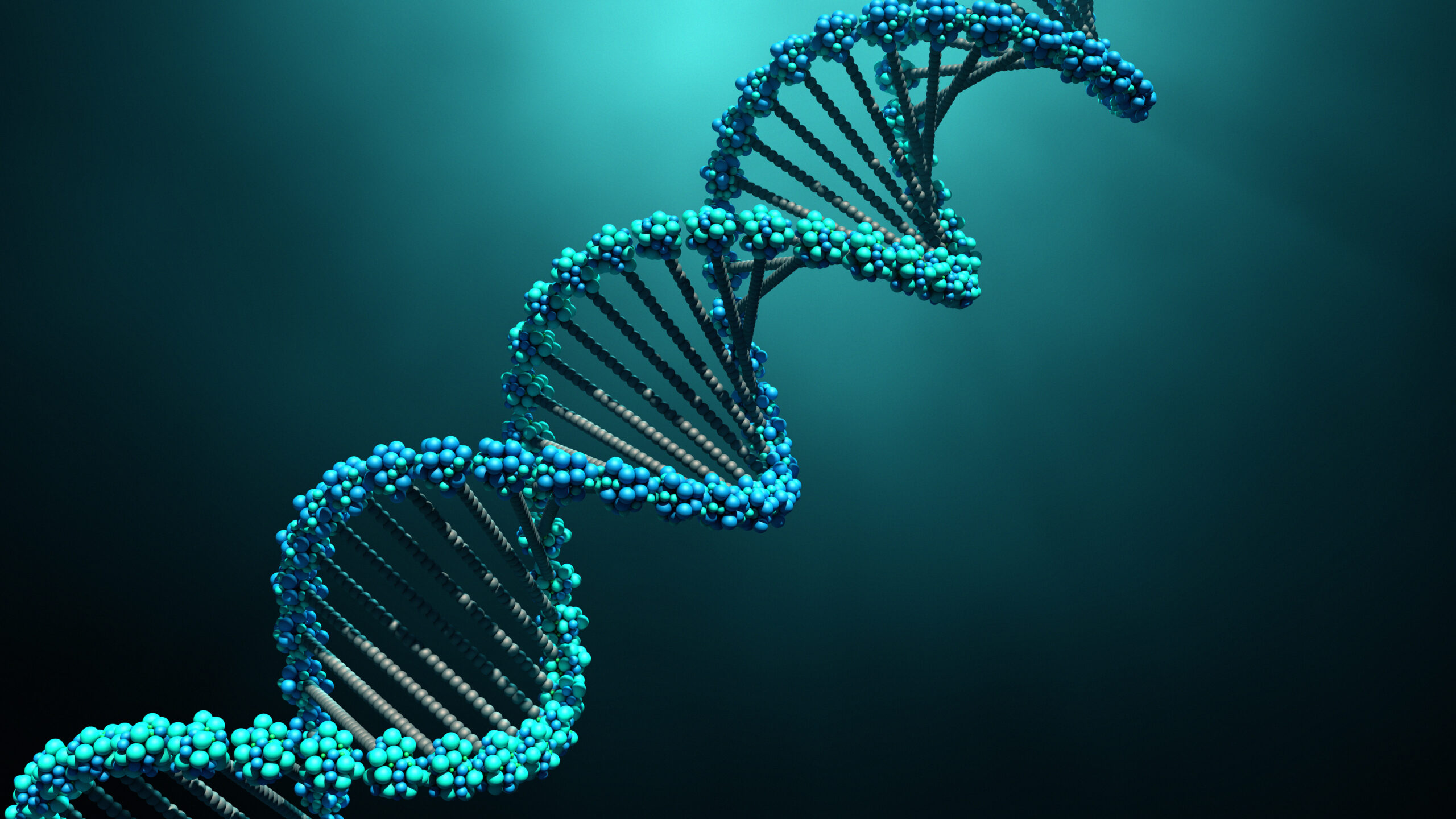If you’re unfamiliar with whey protein, the first thing you might think of when someone mentions it is that super muscular dude at the gym. I know that’s what I thought before I researched into it.
Because there are so many different options and reasons for using them, choosing the right protein powder for you can be confusing. The good news is that in this article I’m going to let you know what to look for in a whey protein powder and what to avoid.
Maybe you’re a runner and you’re looking for the best whey protein powder for weight loss or maybe you’re hitting the gym for weight training and you’re looking for the best whey protein powder for weight loss. Whatever the reason, I’m going to outline how to identify the best quality ingredients and even include our very own favorite whey protein powder so this choice will be easy breezy. Let’s get started!
TRUTH BOMB:
You’re
Already killing it!
If You Were More Consistent With Your Wellness Routine, You’d Be Unstoppable.
Can Whey Protein Be a Game Changer?
Evidence shows that supplementing with whey protein can help build muscle, increase weight loss, improve bone density, and boost heart health. So if any of those sound good to you, including whey protein in your daily diet may just be the game changer.
What is Whey Protein?
Whey protein is derived from milk. Milk contains two types of protein: whey and casein. Casein is a less-popular form of protein because it’s not as easily absorbed by our bodies. Since Casein is associated with indigestion, bloating, heartburn, allergic reactions, and bad aftertaste– we don’t want to be buying the casein protein powder (1).
Whey protein is the watery part of the milk; if you’ve ever had a film form on top of your yogurt, that’s probably whey! There are three types of whey protein: isolate, concentrate, and hydrolyzed whey.
Whey protein concentrate is the best-tasting of the three and maintains more of the vitamins and minerals found in whey. However, you will have a lower protein content. Whey isolate has a much higher protein content. If you’re aiming for a low-carb diet, it’s preferable to use isolate because of this. Isolate is also recommended for people trying to bulk up.
Plus, it’s the type of whey protein usually used in research–most the of the benefits we list below apply specifically to whey isolate, though likely they also apply to concentrate.
Top Benefits of Whey Protein
Build Muscle
There are a lot of reasons to build muscle. You may want to look better in a swimsuit or you may want to feel stronger. If you want to lose weight without losing muscle it makes sense to work on building your muscle up as you lose weight. Some people may want to increase strength and that’s another reason to support muscle tissue.
Whatever the case, supplementation with whey protein is one of the best ways to build muscle. Here’s why:
1. It’s Easy to Digest
Whey isolate is much easier to digest than many other forms of protein. It’s also extremely bioavailable, meaning that your body easily processes its nutrients to get maximum use out of it. It’s also a complete protein, meaning it contains all the essential amino acids your body needs, helping your muscle building blocks build.
2. It’s Efficient
Whey protein is also an efficient, affordable way to get a lot of protein into your diet without eating steaks at every meal.
A study published in 2009 looked at using protein to help build skeletal mass. When participants ate 25-30 grams of protein per serving at each meal, both young people and elderly participants experienced greater protein synthesis than when they consumed less protein (2).
However, achieving this much protein per meal can be challenging, especially if you’re used to limiting your calories. One serving of whey protein isolate contains about 20 grams of protein per serving, making it much easier to meet your protein goals.
While we prioritize high-quality foods like pasture-raised chicken and grass-fed dairy and beef it can be really tough to get all of your protein needs met from these sources if you want to build muscle. You have to eat a LOT of animal protein and most people just…can’t.
When it comes to choosing the best whey protein for weight gain (i.e., muscle gain), whey protein is the gold standard.
The Nutrition & Metabolism journal in London published a 2010 report that pointed to the growing body of evidence suggesting that whey protein stimulates “the greatest rise in” muscle protein synthesis and aids in enhanced muscle recovery (3). This also makes it the best whey protein for athletes, whether they’re weekend warriors or professionals.
Scientists believe that one of the reasons whey protein is such a powerful aid in muscle building is because of an amino acid that occurs naturally in whey, called leucine. Leucine is a branched-chain amino acid (BCAA) and a secret powerhouse when it comes to muscle building.
In fact, BCAA’s are directly involved in the stimulation of protein synthesis as your body builds skeletal muscle, and leucine is one of the main reasons whey protein helps you build muscle (4).
Whey isolate has been proven to be superior to soy protein, carbs, and casein protein (5,6) and thanks to leucine, produces powerful results when combined with strength training.
A ten-week study found that ingesting 20 grams of protein and amino acids an hour before and after exercise is a highly effective way to begin muscle protein synthesis (7). This supplementation is even effective when it comes to building muscle mass in the elderly (8).
Lose Bodyfat Without Losing Lean Muscle
Obesity is a growing problem in the United States because it leads to a whole host of problems, including heart disease. While we know that a high-protein diet that’s also low in carbs can help significantly with weight loss (9,10), one of the problems with weight loss is that it can also cause muscle loss. There is ample evidence, however, to suggest that whey isolate protein may be able to help with that as I just discussed above.
A 2016 review looked at 27 trials that tested dairy food or supplementation in conjunction with lowered caloric intake. It found that people who supplemented with dairy experienced a greater reduction in body weight and body fat mass than people who didn’t.
This effect on body fat was especially significant for women. In addition to fat loss, people who included a high amount of dairy in their diets lost less lean muscle mass than people who didn’t (3).
A trial a decade earlier divided participants into two groups: both reduced their calories by five hundred, but one group also drank whey protein supplements before breakfast and dinner. After twelve weeks, each group had lost a significant amount of weight because they reduced calories–but the whey protein group had lost more body fat and less lean muscle than the other group (4).
Maintain Ketosis
If you’re trying to reap the benefits of a keto lifestyle, a good quality whey protein powder can help you achieve ketosis and maintain it– even when you’re on the go. Whey protein isolate, in fact, is a fantastic choice because it’s low in carbs but high in protein– making it the best whey protein for weight loss.
Plus, you’ll notice quickly that a high-quality whey protein powder is much more economical per serving than all that grass-fed meat and eggs you’re buying! This doesn’t mean you should use whey protein as a replacement for a high-quality diet, but it can play a very helpful role.
Lower Your Blood Pressure
Supplementing with whey protein can even help lower your risk of heart disease. High blood pressure is a marker for heart disease and other problems, but research indicates that something called an angiotensin-converting enzyme (ACE) contributes to hypertension. Peptides found in milk protein, however, may inhibit ACEs. This may explain why dairy products seem to lower blood pressure, especially in women and the elderly (11,12).
In 2010, researchers studied the impact of whey protein, casein, and glucose supplementation on 70 study participants. At the end of the twelve-week trial, participants who had supplemented with whey had improved blood pressure and vascular function (13).
Boost Your Immunity
In addition to containing leucine, which builds muscle, and bioactive peptides, which lower blood pressure, whey protein also contains something called cysteine. Cysteine, like leucine, is an amino acid, but it’s special because it increases levels of something called glutathione in your body.
Glutathione is a powerful antioxidant that plays a role in everything from preventing cancer to preventing the flu, and it also makes other antioxidants, such as vitamins E and C, work more effectively.
Whey protein also includes amino acids L-arginine and L-lysine, and vitamin D, all of which, in addition to glutathione, play important roles in our immune system, creating an amino profile difficult to achieve in a plant-based diet.
Helps with Type 2 Diabetes
In a study of eight patients with type 2 diabetes, participants were given beef soup, and then thirty minutes later, given a potato meal. The eight participants were divided into two groups–the first received 50 grams of whey protein per serving in the soup and the second received the same amount of protein in the potato meal.
The trial’s authors determined that whey protein, when consumed before a carb meal, can slow gastric emptying and stimulate insulin secretion (14).
Another study published in the American Journal of Clinical Nutrition found extremely similar results when adding whey protein to carb-rich meals (15).
The Best Whey Protein Powder
Grass-fed whey protein is the gold standard in protein supplementation thanks to the quality of its ingredients. When you’re looking to secure the best whey protein powder benefits on the market, it’s important to understand that since you’ll be consuming it as a daily supplement, it should be as high-quality as possible.
Makers of protein powders are notorious for adding all sorts of junky fillers to their powders, especially artificial sweeteners and sugars. Make sure your protein powder has as few additives as possible, zero artificial sweeteners and artificial ingredients, and no added sugar. And, make sure all of its ingredients are readily recognizable and pronounceable!
The top whey protein powders on the market will source their protein from extremely high-quality dairy sources. The best whey protein powder will be from grass-fed cows that are never fed antibiotics, growth hormones, or grain.
Finding the Best Whey Protein Powder
One of the best things about whey is that you can achieve all those fantastic benefits with one product. Whether you’re looking for the best whey protein for weight loss, the best whey protein for athletes, the best whey protein for weight gain and muscle growth, or you simply want to use whey to increase your health, the same high-quality whey protein powder will do it all.
This is our favorite brand of high-quality whey protein, whether you’re an athlete looking to increase muscle growth or simply trying to achieve weight loss goals. We just added it to our shop because we like it so much and it makes what can be a very confusing process much simpler.
It’s naturally flavored and uses whey sourced from grass-fed, antibiotic-free, and grain-free cows, and it’s completely free of artificial sweeteners and poor-quality filler ingredients. It comes in two delicious flavors, and in my opinion, it tastes amazing and mixes well–two things that can be difficult to find in even the best-selling protein powders!
Myths About Whey Protein
Despite whey protein’s incredible benefits, there are a few people who shouldn’t use it. If you’re allergic to dairy, you’ll likely need to find an alternative protein source for your protein needs, such as a plant-based protein (please keep in mind that we never recommend using soy protein because of its ability to disrupt hormones). However, there is less than 1% lactose in whey, so if you’re lactose intolerant, there’s a good chance whey protein won’t bother you. Here are some common myths and questions about whey protein.
Will Whey Protein Make Me Fat if I Don’t Work Out?
This is one of the most asked questions I get. The answer is no! Whey protein can actually help you lose weight and gain muscle as you read above even if you’re not actively working out–though of course we recommend doing so as part of a healthy lifestyle.
Do I have to drink protein powder within a certain time period before or after working out?
Another common myth is that you must drink protein powder within a certain number of minutes before or after working out. If you’re trying to stay in ketosis, the timing of your food matters, but there’s conflicting evidence about whether or not to take protein before or after working out.
Instead, the most important thing is that you are consuming whey protein daily. If you consume whey protein in the morning you will tamp down hunger throughout the day and sustain yourself.
Is Using Whey Protein Dangerous?
Another common fear centers around whey protein dangers, but unless you’re ingesting three or more servings a day, you won’t be consuming enough protein to cause harm.
The worst whey protein powder side effects will be stomach cramps, headaches, diarrhea, and other similar unpleasant symptoms. To avoid these, make sure you’re enjoying a serving a day and using whey as a supplement to your healthy diet – not as a replacement for all of your meals.
Tips for Enjoying Your New Whey Protein
The best whey protein powder we recommend is delicious (it comes in chocolate and vanilla); it doesn’t need extra sweetener. You can add it to delicious recipes like this Keto Iced Coffee Protein Shake or simply blend it straight with almond milk, spinach, kale, and MCT oil for a super smoothie that keeps you full and energized all day.
Are you ready to start supplementing with whey protein? If you have a favorite food or drink you add your whey to, I would love to know! Comment below and let me know how you supplement your whey protein.
Sources:
- https://fitness.mercola.com/sites/fitness/archive/2016/09/30/casein-protein-supplements.aspx
- Paddon-Jones, D. & Rasmussen B.B. (2009). Dietary protein recommendations and the prevention of sarcopenia. Current opinion in clinical nutritional & metabolic care, 12(1), 86-90. Abstract: https://www.ncbi.nlm.nih.gov/pubmed/19057193
- Hulmi, J.J., Lockwood, C.M & Stout, J.R. (2010). Effect of protein/essential amino acids and resistance training on skeletal muscle hypertrophy: A case for whey protein. Nutrition & Metabolism, 7, 51. Abstract: https://www.ncbi.nlm.nih.gov/pubmed/20565767
- Kimball, S.R. & Jefferson, L.S. (2006). Signaling pathways and molecular mechanisms through which branched-chain amino acids mediate translational control of protein synthesis. The Journal of nutrition, 136(1), 227S-31S. Abstract: https://www.ncbi.nlm.nih.gov/pubmed/16365087
- Stonehouse, W., Wycherley, T., Luscombe-Marsh, N., Taylor, P., Brinkworth, G. & Riley, M. (2016). Dairy Intake Enhances Body Weight and Composition Changes during Energy Restriction in 18-50-Year-Old-Adults–A Meta-Analysis of Randomized Controlled Trials. Nutrients, 8(7), 394. Abstract: https://www.ncbi.nlm.nih.gov/pmc/articles/PMC4963870/
- Frestedt, J.L., Zenk, J.L., Kuskowski, M.A., Ward, L.S. & Bastian, E.D. (2008). A whey-protein supplement increases fat loss and spares lean muscle in obese subjects: a randomized human clinical study. Nutrition & Metabolism, 5, 8. Abstract: https://www.ncbi.nlm.nih.gov/pmc/articles/PMC2289832/
- Hartman, J.W., Tang, J.E., Wilkinson, S.B., Tarnopolsky, M.A., Lawrence, R.L., Fullerton, A.V. & Phillips, S.M. (2007). Consumption of fat-free fluid milk after resistance exercise promotes greater lean mass accretion than does consumption of soy or carbohydrate in young, novice, male weightlifters. The American journal of clinical nutrition, 6(2), 373-81. Abstract: https://www.ncbi.nlm.nih.gov/pubmed/17684208
- Pennings, B., Boirie, Y., Senden, J.M., Gijsen, A.P., Kuipers, H. & van Loon, L.J. (2011). Whey protein stimulates postprandial muscle protein accretion more effectively than do casein and casein hydrolysate in older men. The American journal of clinical nutrition, 93(5), 997-1005. Abstract: https://www.ncbi.nlm.nih.gov/pubmed/21367943
- Willoughby, D.S., Stout, J.R. & Wilborn, C.D. (2007). Effects of resistance training and protein plus amino acid supplementation on muscle anabolism, mass, and strength. Amino Acids, 32(4), 467-77. Abstract: https://www.ncbi.nlm.nih.gov/pubmed/16988909
- Hayes, A. & Cribb, P.J. (2008). Effect of whey protein isolate on strength, body composition and muscle hypertrophy during resistance training. Current opinion in clinical nutritional & metabolic care, 11(1), 40-4. Abstract: https://www.ncbi.nlm.nih.gov/pubmed/18090657
- Noakes, M., Keogh, J.B., Foster, P.R. & Clifton, P.M. (2005). Effect of an energy-restricted, high-protein, low-fat diet relative to a conventional high-carbohydrate, low-fat diet on weight loss, body composition, nutritional status, and markers of cardiovascular health in obese women. American journal of clinical nutrition, 81(6), 1298-306. Abstract: https://www.ncbi.nlm.nih.gov/pubmed/15941879
- Krieger, J.W., Sitren, H.S., Daniels, M.J. & Langkamp-Henken, B. (2006). Effects of variation in protein and carbohydrate intake on body mass and composition during energy restriction: a meta-regression. The American journal of clinical nutrition. Abstract: https://www.ncbi.nlm.nih.gov/pubmed/16469983
- Engerbrink, M.F., Hendriksen, M.A., Schouten, E.G., van Rooij, F.J., Hofman, A., Witteman, J.C. & Geleijnse, J.M. (2006). Inverse association between dairy intake and hypertension: the Rotterdam Study. The American journal of clinical nutrition, 89(6), 1877-83. Abstract: https://www.ncbi.nlm.nih.gov/pubmed/19369377
- Wang, L., Manson, J.E., Buring, J.E., Lee, I.M. & Sesso H.D. (2008). Dietary intake of dairy products, calcium, and vitamin D and the risk of hypertension in middle-aged and older women. Hypertension, 51(4), 1073-9. Abstract: https://www.ncbi.nlm.nih.gov/pubmed/18259007
- Pal, S. & Ellis, V. (2010) The chronic effects of whey proteins on blood pressure, vascular function, and inflammatory markers in overweight individuals. Obesity, 18(7), 1354-9. Abstract: https://www.ncbi.nlm.nih.gov/pubmed/19893505
- Ma, J., Stevens, J.E., Cukier, K., Maddox, A.F., Wishart, J.M., Jones, K.L., Clifton, P.M., Horowitz, M. & Rayner, C.K. (2009). Effects of a protein preload on gastric emptying, glycemia, and gut hormones after a carbohydrate meal in diet-controlled type 2 diabetes. Diabetes care, 32(9), 1600-2. Abstract: https://www.ncbi.nlm.nih.gov/pubmed/19542012
- Frid, A.H., Nilsson, M., Holst, J.J. & Bjorck, I.M. (2005). Effect of whey on blood glucose and insulin responses to composite breakfast and lunch meals in type 2 diabetic subjects. The American journal of clinical nutrition, 82(1), 69-75. Abstract: https://www.ncbi.nlm.nih.gov/pubmed/16002802









Wow!! informative post about whey protein powder with its benefits. Keep up the good work.
Thank you! So glad you’re loving it!